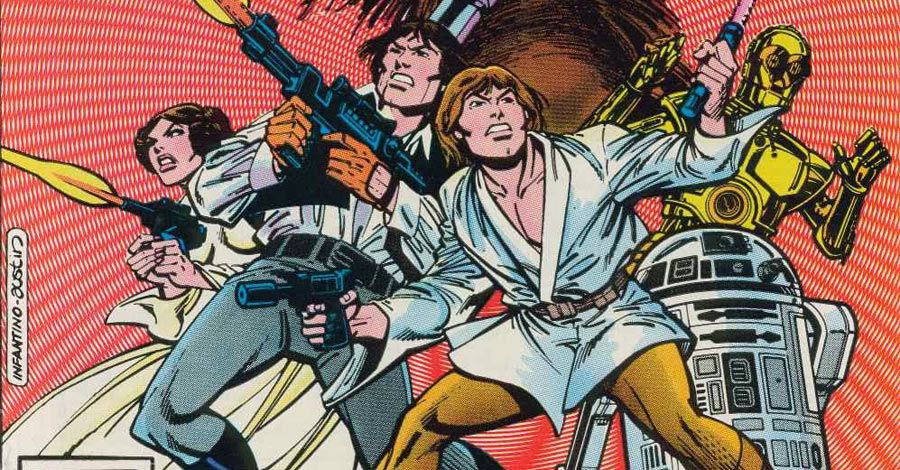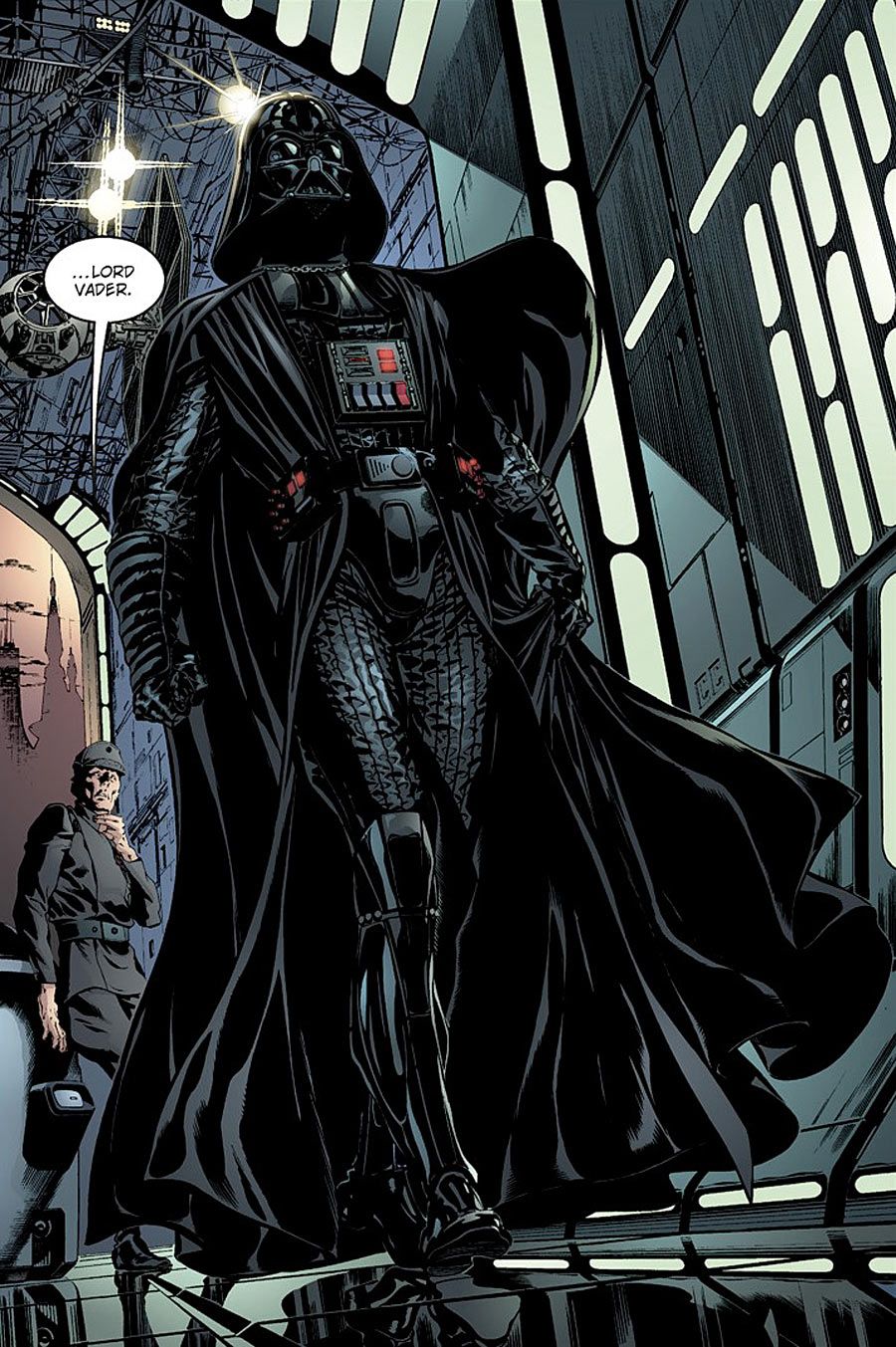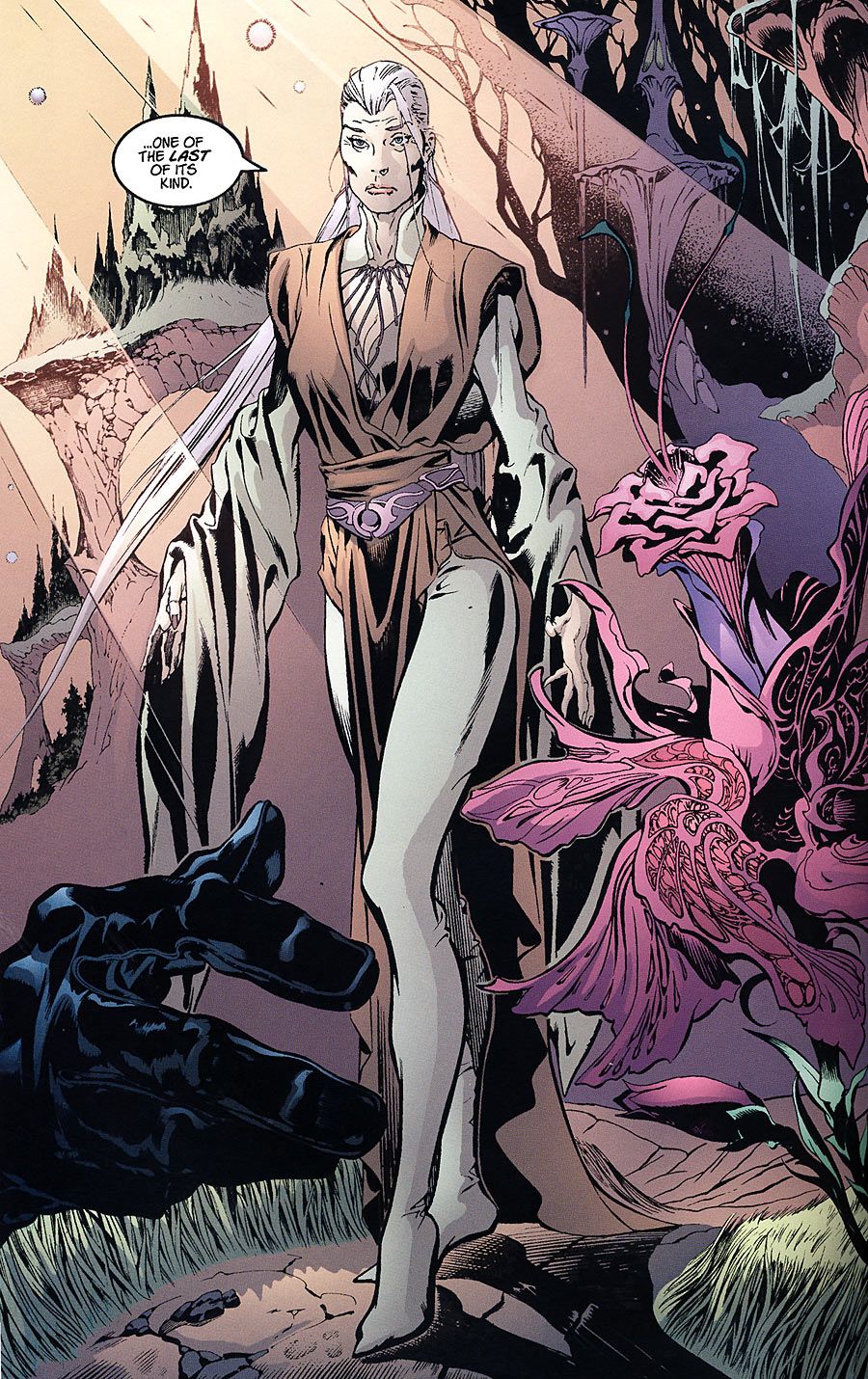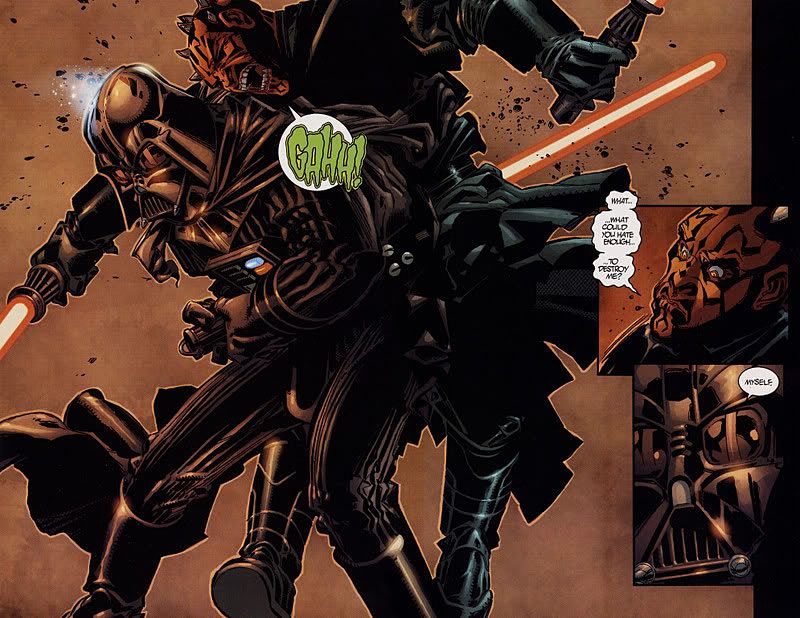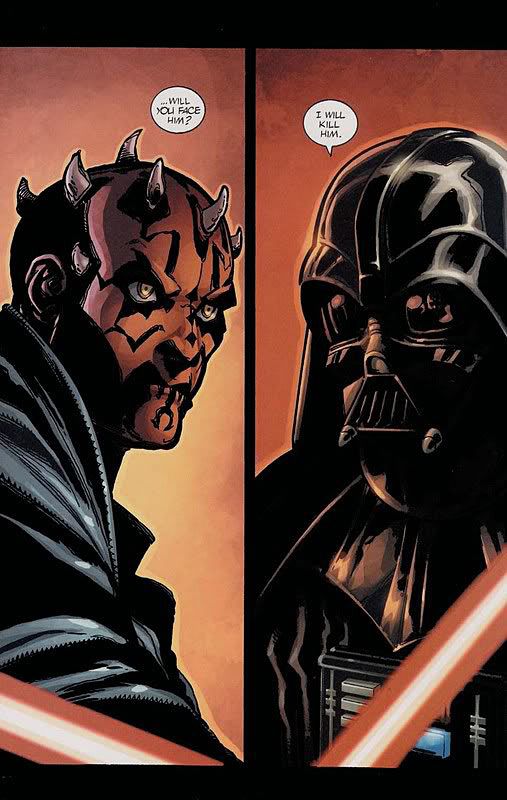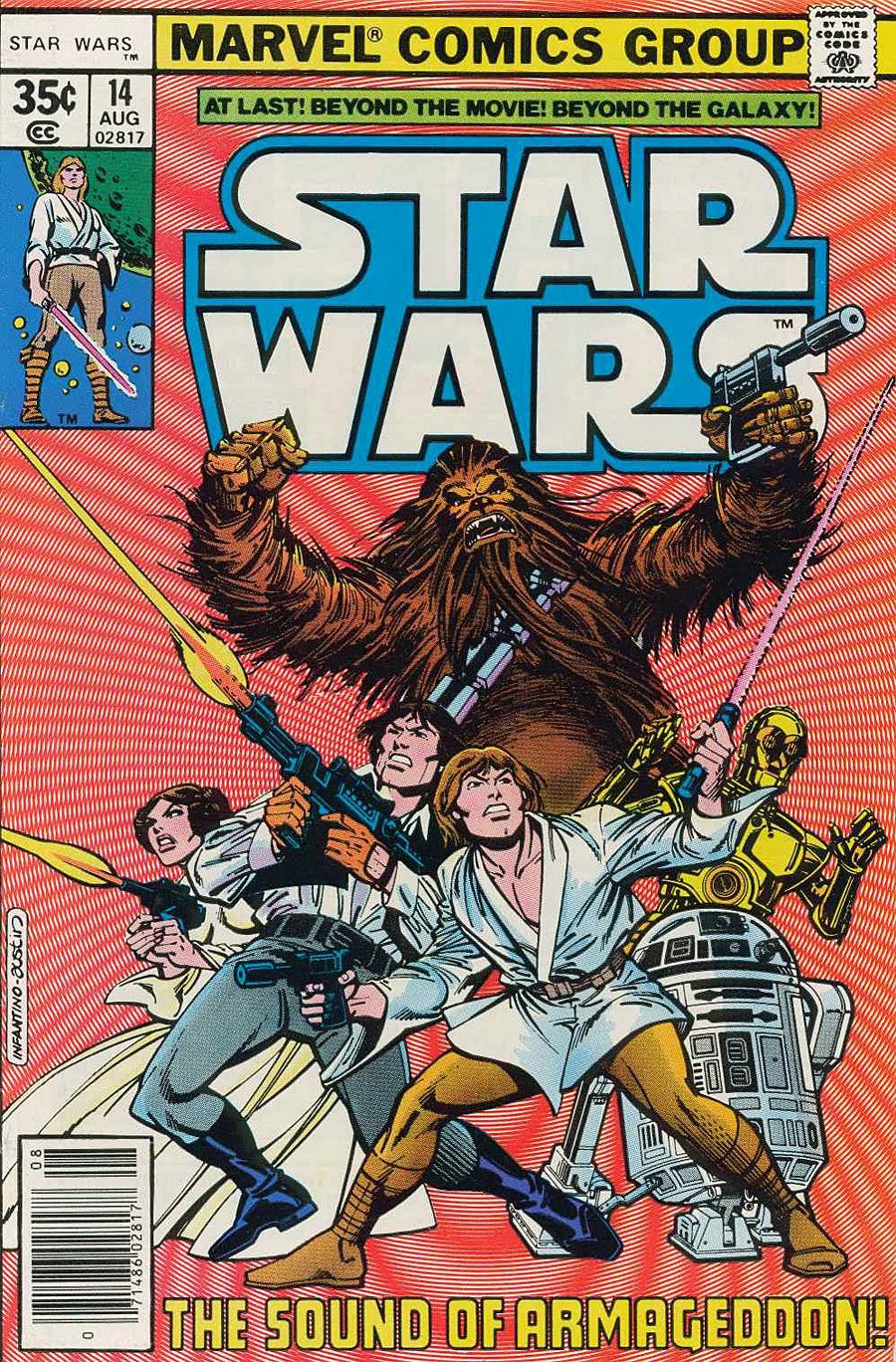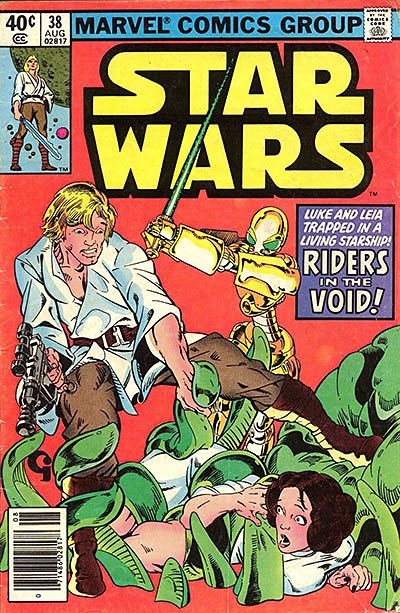There's a quote that's been attributed to writers including Raymond Chandler, Stephen King, William S. Burroughs, even Alan Moore. But it's actually by James M. Cain, whose novels including "The Postman Always Rings Twice," "Mildred Pierce," and "Double Indemnity" were made into films.
Cain was not particularly a movie fan, and didn't even bother to see some of the film adaptations of his books. He was asked about his seeming disinterest. His reply: "People tell me, don't you care what they've done to your book? I tell them, they haven't done anything to my book. It's right there on the shelf."
It's a cogent reminder for any creator that your work is your work. Once it's in the hands of the audience, nothing can change it. (We all know Han really shot first, right?)
I thought about Cain's quote when there was great wailing and gnashing of teeth over the fate of the Star Wars Expanded Universe now that "new" continuity has arrived with "The Force Awakens." Fans were concerned, and in some cases absolutely apoplectic, that those stories didn't "matter" anymore. A fairly concise explanation of the arcane canon concerns can be found here on CBR.
RELATED: The Ins and Outs of "Star Wars" Canon
There was a bout of outrage on Twitter (isn't there always?) fomented by devotees of the Expanded Universe, principally the novels and comics that came after the original film trilogy and built a complex, expansive narrative. They were angry that those stories had somehow been invalidated. Someone asked me if I was upset that my "Star Wars" stories written for Dark Horse no longer "counted." My honest answer was that it didn't bother me at all. I don't really see the difference in one set of made-up stories as compared to another.
I got the same questions about my "Green Lantern" run when DC Comics launched the New 52. Was I made at all those issues being wiped away? No, because they're still there, digitally and in long boxes and on shelves.
To put it another way: they're all imaginary stories.
Nothing changes the thrill I got from reading Alan Dean Foster's "Splinter of the Mind's Eye" in 1978, the first story that continued the Star Wars saga. In retrospect, it's a story that was conceived before it had been decided that Luke and Leia were brother and sister. There's underlying sexual tension between the two characters in the novel that obviously doesn't fit where the cinematic story went afterwards. But I was ecstatic to have any tale set a long time ago in a galaxy far, far away. I still have my original paperback copy of "Splinter of the Mind's Eye," safely tucked away.
After "Splinter," I devoured the Han Solo novels by Brian Daley (I was always more of a Han fan than a Luke fan). I don't know where or even if those stories fit in the canon, and I don't care. What's important is that I loved those stories as a kid, and that I remember them with immense fondness. Whether they're part of the canon can't change that.
My other "Star Wars" fix at the time was Marvel's monthly series, giant green rabbit and all. More than any other title, that's what maintained my interest in reading comics. Years later, when Dark Horse offered me the dream-come-true opportunity to write "Star Wars" comics, I never once thought that anything I did somehow invalidated those Marvel comics. Again, they're all just imaginary stories.
Two of my stories were published in the "Star Wars Tales" anthology, which was set aside for "non-continuity" tales. The first featured Darth Vader hunting down one of the last Jedi, with utterly exquisite artwork by Claudio Castellini. The other story was a battle to the death between Vader and Darth Maul, illustrated by Rick Leonardi and Terry Austin, and set on a volcanic, lave-ridden world. It contains the longest fight scene I've ever written, and a definitive winner. It certainly didn't follow the "let's fight, then team up" trope.
The stories were supposed to be outside canon, but I approached them in the same manner as I did any of my other "Star Wars" work -- telling the best stories I could. There's no reason they don't fit within continuity if you want to place them there.
Canon We Will And Won't Miss In The Star Wars Expanded Universe
Comics, most especially superhero comics, have an obsession with continuity. With how the all the smaller pieces fit into a greater whole to create a coherent tapestry. Only the tapestry is hardly ever coherent because of the sheer size and scope. Maintaining continuity is a Sisyphean task. It's one of the reasons there are regular reboots, restarts and do-overs. The accumulated barnacles of years of storytelling have to be scrapped off. Continuity is like the old Tetris game. Eventually, the screen fills up and you have to start again.
Continuity was never a prime motivation for me as a reader or a writer. I'm far more interested in the story itself, rather than how that story relates to other stories. For me, stories about other stories are rarely entertaining. I'm not interested in how the myriad and sometimes impenetrable threads connect. Engage me in this story, right here, right now. Make me care about the characters and what's happening to them, not what happened between panels in a comic from a decade ago.
I do understand that's a prime attraction for some people. But if I'm being brutally honest, it's a mug's game. It's not about what "counts" or what's "real"... because all of it counts, and none it is real.
The story's the thing. More to the point, how the story made you feel. Did it entertain you? Make you laugh or cry? Touch you in some way? That's the real goal for storytellers. That's what counts.
Ron Marz has been writing comics for two decades, and thinks it's pretty much the best job ever. His current work includes "John Carter: Warlord of Mars" for Dynamite, "Skylanders" for IDW, "The Protectors" for Athlitacomics on Madefire, and Sunday-style strips "The Mucker" and "Korak" for Edgar Rice Burroughs, Inc. Follow him on Twitter (@ronmarz) and his website, www.ronmarz.com.

